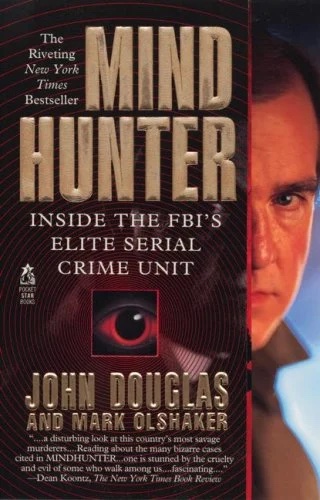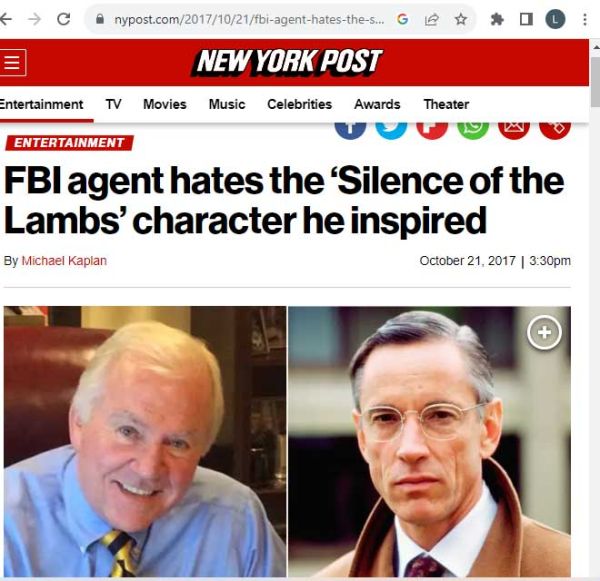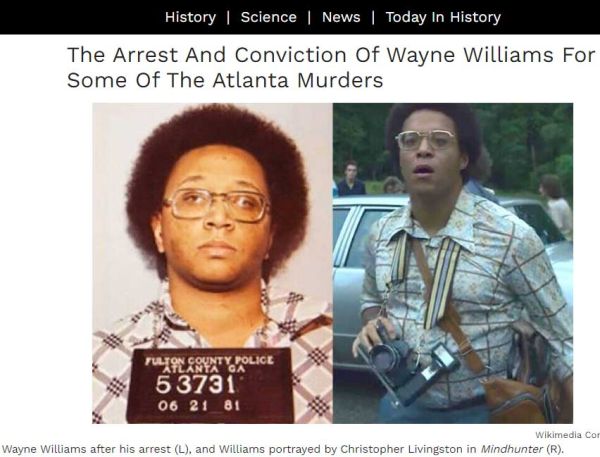Over-control
Over-control
Former FBI-profiler John Douglas published his autobiography Mindhunter in 1995. It is irreverent as hell, so I knew I'd love it. He describes himself as a "blue-flamer," anxious to please his superiors. He also relates a few hard-edged college escapades that landed him in jail. He flouted authority during college, as often as he enforced it in his professional life. When his fiancee asked him to meet the priest scheduled to marry them, Douglas started running his mouth about meeting her in a topless lounge, where she danced with tassels over her nipples. When one of her tassels flew off, he happened to catch it and returned it to her.
After a weekend tryst with her, he stepped out of the elevator at the hotel, in front of the other guests in the elevator, and promised her that he would bring the strawberries and cream the next time they met. I have read through the reviews of Douglas's book on Amazon, surprised at their disdain of his wisecracking. They don't seem to catch that his cocky-as-hell hardness of character saves him when he has to look at crime-scenes and crime-scene photos. He cracks jokes with hardened serial-killers just to get on their level and coax them to talk honestly about their lives.
After 20+ years in this perverse cauldron, he nearly died from a physical breakdown. Although doctors identified the precise cause as encephalitis, the stress of his job surely exacerbated the severity of his breakdown. So he retired from the FBI in 1993 or '94 and turned to full-time writing. His first book, Mindhunter, appeared in 1995. Six other books have followed it.
Mindhunter may have resulted from public curiosity about Douglas's work and his increased public recognition, following the release of the movie The Silence of the Lambs in 1991, based on a 1988 novel by that name, authored by Thomas Harris. Harris admitted that he had sat in on the Criminal Psychology classes that Douglas taught at the FBI Academy, and that the main character of the novel and the movie, Jack Crawford, was based on Douglas.
John Douglas took part in the investigation of the Atlanta Child Murders that plagued Atlanta's Black community from 1979 to 1981. As a criminal profiler, Douglas had to look at page after page of dead, decayed bodies of Black children and determine what sort of person could do such a thing. He had to periodically fly back to Washington to tend to his other cases, then return to Atlanta to continue his investigation.
After the police arrested Wayne Williams for some of the murders, Douglas developed a sense of who Williams was and concocted a ruse of sorts to make him reveal himself as the killer. With his profile in hand, Douglas met with the staff of the Fulton County District Attorney's office to brief them on what to do. He gave prosecutor Jack Mallard precise instructions: "He (Williams) is an over-controlled personality. . . . You've got to break him down." Williams had behaved so innocently, so meekly, Douglas could see that he had persuaded most of the jury of his innocence: "How could it possibly be me?"
Douglas told Mallard that after he had worn Williams down, he needed to physically touch Williams's arm--invade his space, so to speak: "What did it feel like, Wayne, when you put your hands around the victim's throat? Did you panic? Did you panic?"
Williams responded with a timid, nearly inaudible "No," then erupted in a spectacle of rage that terrified the jurors who, having seen the real person behind the mask, voted him guilty of two homicides and recommended the death penalty. Nothing else in Douglas's long career has impressed me more than the Atlanta Child Murder case. Again, he instructed the prosecutor to wear Williams down, then physically grasp him by the arm. His question to Williams caught him completely off-guard.
But we're talking about a behavioral principle, not an isolated case. If you harangue people long enough with a belligerent interrogation, you can physically touch them and catch them off-guard. It disturbs them so much, you really can't predict how they will behave. Like Williams, they might lash out at you.
Americans, safe and secluded in their friendly political and socio-economic communities, should take note. The divisions and hostilities in our nation have reached a point that a belligerent interrogation can touch off civil unrest at a level that civilized Americans have not seen--that most other nations have experienced more than once. They would not fall for Douglas's ruse so easily.



